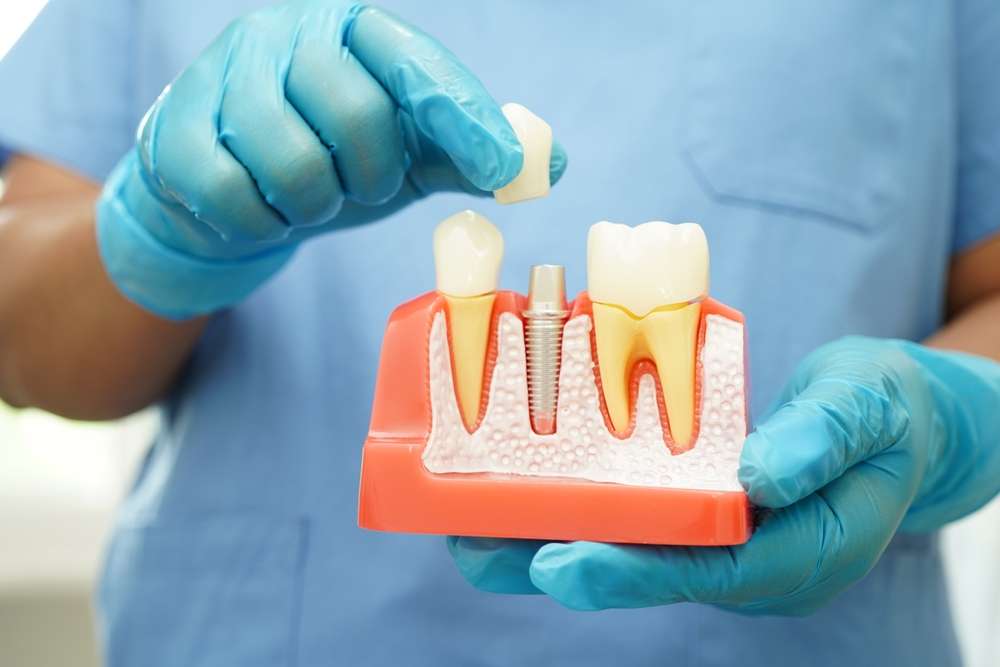Comprehensive Guide to Dental Implants and Full Mouth Restoration
Dental implants and full mouth restoration procedures have revolutionized the field of dentistry, offering hope to those struggling with missing teeth or severe dental issues. This comprehensive guide will explore the world of dental implants, helping you understand the process, find qualified professionals, and make informed decisions about your oral health.

What are dental implants and how do they work?
Dental implants are artificial tooth roots surgically placed into the jawbone to support replacement teeth. Made from biocompatible materials like titanium, these implants fuse with the bone over time, providing a stable foundation for crowns, bridges, or dentures. The implant process typically involves several stages:
-
Initial consultation and planning
-
Implant placement surgery
-
Healing and osseointegration (fusion with bone)
-
Placement of abutments and final restorations
This innovative approach offers a long-lasting, natural-looking solution for missing teeth, improving both function and aesthetics[1].
How can I find a qualified implant dentist in my area?
Finding a skilled implant dentist is crucial for successful treatment. Here are some steps to help you locate a qualified professional:
-
Ask for recommendations from your general dentist or trusted healthcare providers
-
Check with local dental societies or professional organizations
-
Research online reviews and patient testimonials
-
Verify credentials and experience in implant dentistry
-
Schedule consultations with potential dentists to discuss your case
Look for dentists who have completed specialized training in implantology and have a proven track record of successful implant procedures. Don’t hesitate to ask about their experience, success rates, and examples of previous work[2].
What does full mouth dental implant restoration involve?
Full mouth dental implants, also known as full arch restoration, is a comprehensive solution for patients missing all or most of their teeth. This procedure typically involves:
-
Thorough examination and treatment planning
-
Extraction of any remaining damaged teeth
-
Placement of multiple implants in the upper and lower jaws
-
Temporary prosthesis while implants heal
-
Final placement of custom-made, fixed dentures or bridges
Full mouth restoration can dramatically improve a patient’s quality of life, restoring proper chewing function, speech, and confidence. The process may take several months to complete but offers long-lasting results[3].
How much do dental implants and full mouth restorations cost?
The cost of dental implants and full mouth restorations can vary significantly based on factors such as the number of implants needed, complexity of the case, and geographic location. Here’s a general breakdown of potential costs:
| Procedure | Average Cost Range | Factors Affecting Price |
|---|---|---|
| Single Tooth Implant | $3,000 - $6,000 | Bone grafting, location, type of implant |
| Full Mouth Implants (All-on-4) | $25,000 - $50,000 per arch | Number of implants, type of prosthesis |
| Traditional Full Mouth Restoration | $60,000 - $90,000 | Number of implants, material quality |
Prices, rates, or cost estimates mentioned in this article are based on the latest available information but may change over time. Independent research is advised before making financial decisions.
It’s important to note that while dental implants may seem expensive initially, they often prove to be a cost-effective long-term solution compared to alternatives like dentures or bridges that may require frequent replacements[4].
What are the benefits of choosing dental implants?
Dental implants offer numerous advantages over traditional tooth replacement options:
-
Natural appearance and function
-
Improved speech and chewing ability
-
Preservation of jawbone structure
-
Long-lasting results (potentially lifelong with proper care)
-
No need for adhesives or special cleaning routines
-
Improved self-esteem and quality of life
While the initial investment may be higher, many patients find that the benefits of dental implants far outweigh the costs in the long run[5].
How long does the dental implant process take?
The timeline for dental implant treatment can vary depending on individual circumstances. A typical single tooth implant process may take 3-6 months from start to finish. Full mouth restorations can take 6-12 months or longer, especially if bone grafting is required.
Key factors affecting the timeline include:
-
Healing time between implant placement and restoration
-
Need for additional procedures (e.g., bone grafting, tooth extractions)
-
Patient’s overall health and healing capacity
While the process may seem lengthy, it’s important to allow proper healing time to ensure the best possible outcomes and long-term success of the implants[6].
Dental implants and full mouth restorations offer life-changing solutions for those struggling with missing teeth or severe dental issues. By understanding the process, researching qualified professionals, and considering the long-term benefits, you can make informed decisions about your oral health and take steps towards a confident, functional smile.
This article is for informational purposes only and should not be considered medical advice. Please consult a qualified healthcare professional for personalized guidance and treatment.




